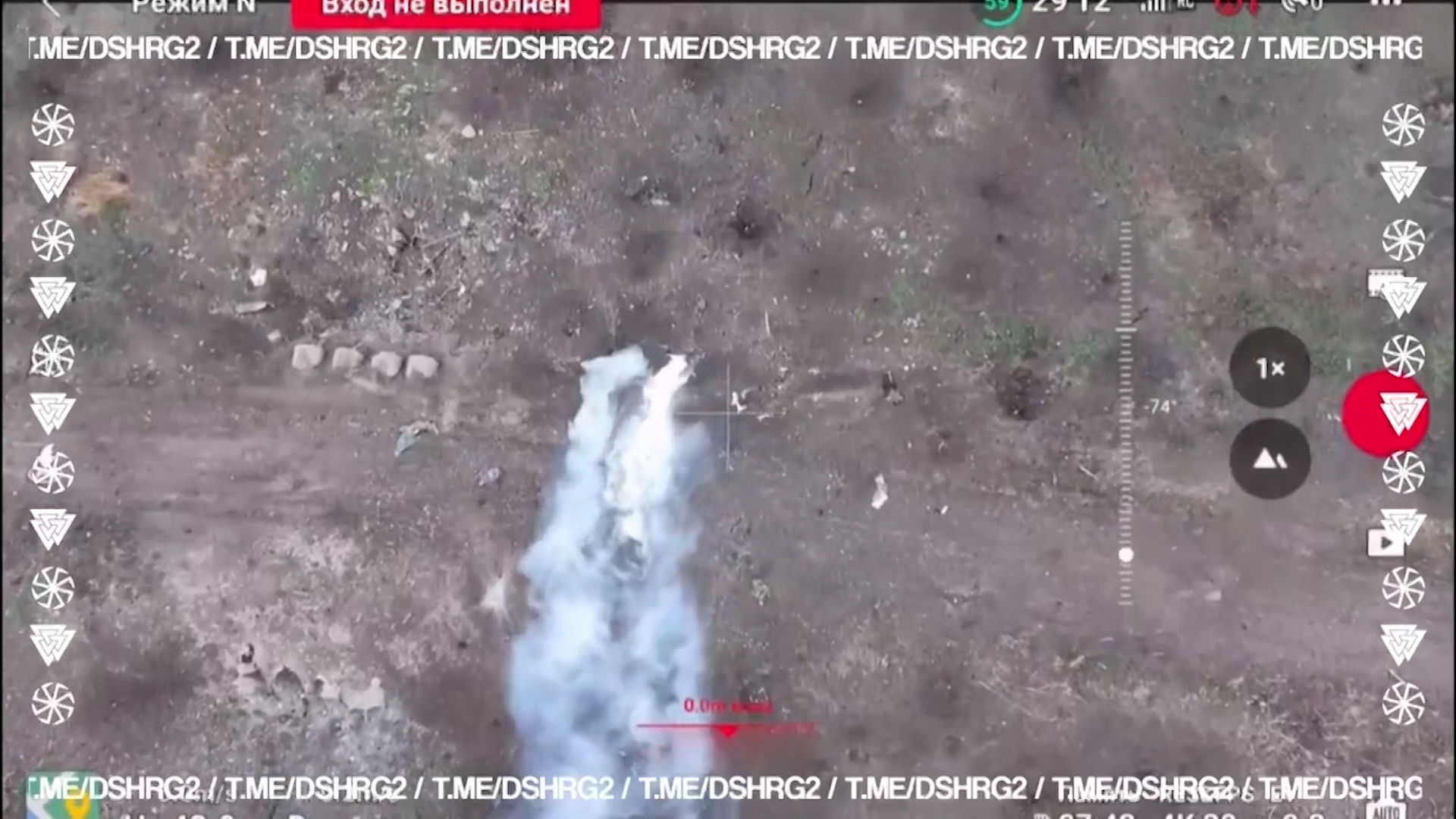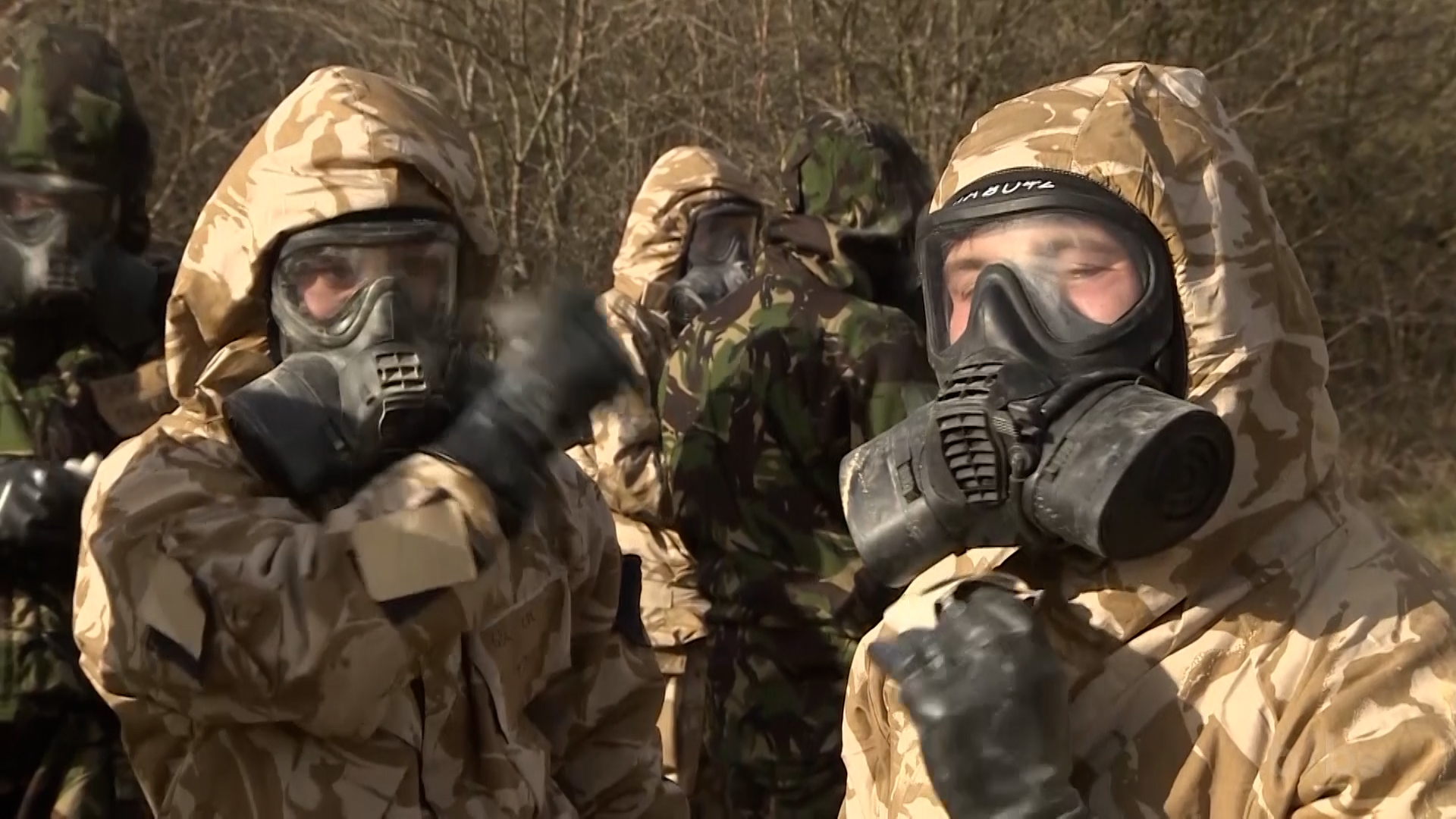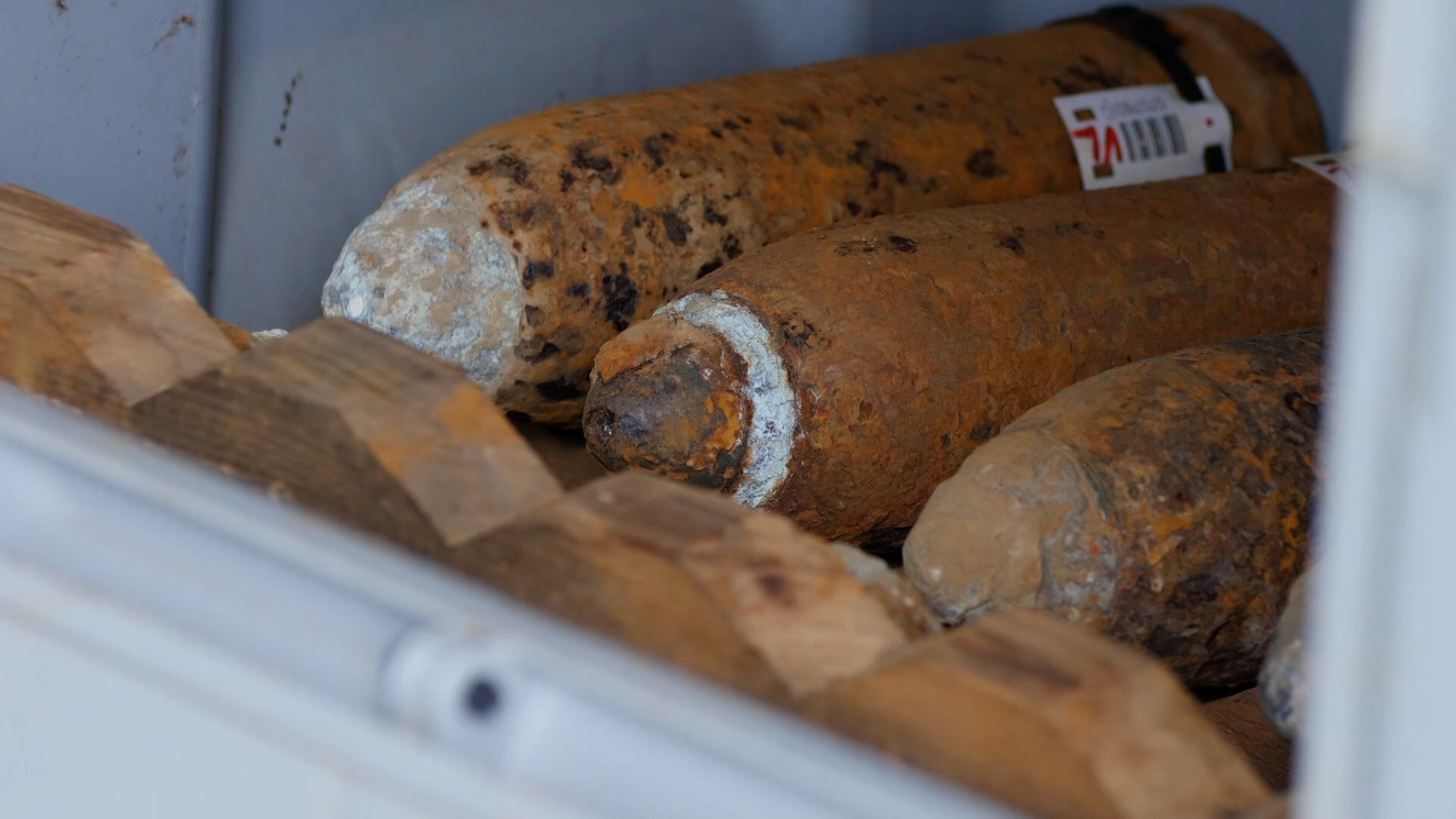
Widespread Russian use of chemical weapons in Ukraine deemed unacceptable by UK

Russia's widespread use of chemical weapons in Ukraine is unacceptable and of deep concern, the Ministry of Defence has said.
Russian forces have been using choking agents, which burn the skin and eyes, causing victims to vomit and struggle to breathe.
An investigation by Dutch and German intelligence agencies found Russian troops had used a chemical called chloropicrin thousands of times on the battlefield.
The use of chemical weapons is considered a war crime under the Geneva Convention, and an MOD spokesperson told BFBS Forces News: "We are deeply concerned by the findings.
"Russia's blatant disregard for international law is unacceptable and the UK is committed to helping Ukraine defend itself against chemical attacks.
"Since Putin launched his illegal invasion, the UK has provided thousands of respirators and decontamination kits to the Ukrainian military."
Ukraine has requested counter-CBRN (chemical, biological, radiological and nuclear) assistance through several bodies, including Nato, which the UK has been providing.

Morbidly brilliant weapons
BFBS Forces News spoke to Colonel Hamish de Bretton-Gordon, a former commanding officer of the Chemical, Biological, Radiological and Nuclear Regiment.
"If you have no morals or scruples, chemical weapons are morbidly brilliant weapons," he said.
"Basically, you soften up the trenches with a lot of artillery fire, which gets people down in the trenches and the foxholes.
"Then the Russians swarm these little FPV drones, each dropping a canister of chloropicrin into the trenches.
"This then creates this really unpleasant vapour. It's a choking agent, so soldiers breathing it in choke and cannot breathe.
"The only way to save yourself if you don't have a respirator is to get the hell out of there.
"What's happening is the soldiers are then getting out of their foxholes, getting out of their trenches… into the open field… and the Russians follow it up with direct fire and artillery and then troops to take those trenches."
In response, the UK Government has sanctioned a Russian research institute and two senior military officials connected to the violations.
Putin ignoring Geneva Convention
According to the Organisation for the Prohibition of Chemical Weapons (OPCW), chemical weapons are defined as "munitions and devices, specifically designed to cause death or other harm through the toxic properties".
Chloropicrin is just one of many banned chemical weapons used in warfare during the First World War.
The compound, used with chemicals such as mustard gas, had a devastating effect, killing thousands of soldiers on the frontline.
The horrors inflicted on troops during World War One led to the Chemical Weapons Convention, which, combined with the Geneva Convention, made the production and use of chemical weapons a war crime.
Russia is one of 193 countries that agreed to it – rules it is now apparently ignoring.

The accusations against Russia are nothing new.
In May 2024, the US also reported the use of chloropicrin in Ukraine.
"Hopefully this will galvanise the international community and the UN to restate the Chemical Weapons Convention and remind people that it is a war crime," said Col de Bretton-Gordon.
"And President Putin… this needs to be added to the list of crimes that he should answer for one day at the International Criminal Court."
Russia denies the allegations and has, in turn, accused Ukraine of using chemical weapons.
But Russia's apparent use of chemicals in battle today follows a worrying trend.
In 2018, former Russian spy Sergei Skripal and his daughter were poisoned in Salisbury by two Russian nationals.
They both survived after weeks in hospital.
Novichok, a deadly nerve agent, was used in the attack.
Also, during the Syrian Civil War, President Assad's regime, supported by Russia, dominated the conflict by using chlorine and sarin gas against civilians.
At the time, US President Barack Obama called the use of chemical weapons a red line, but when crossed, little was done in response.
Why isn't more being done now in Ukraine?
The OPCW says it is monitoring the situation, but it has not been asked to conduct a full investigation.
However, it did find CS gas – commonly known as tear gas – in some samples, which is used as a riot control agent, but is banned in warfare.
Meanwhile, the UK is continuing to send gas masks to the frontline in a simple but effective defence against some chemical weapons.
"Once the chloropicrin grenades are thrown into trenches, you just don your gas mask as you've been trained as a soldier," said Col de Bretton-Gordon.
"That will prevent you breathing in this stuff, so you actually can remain in your trench under cover and ready to see off any attackers."
The true scale of the use of chemical weapons in Ukraine won't be revealed until the war's end, and it's hard to say when that will be.
The terrors of chemical warfare are some of the worst parts of human history.
But their increase now could mean a return to a suffering on the battlefield thought to have been left behind in the last century.









